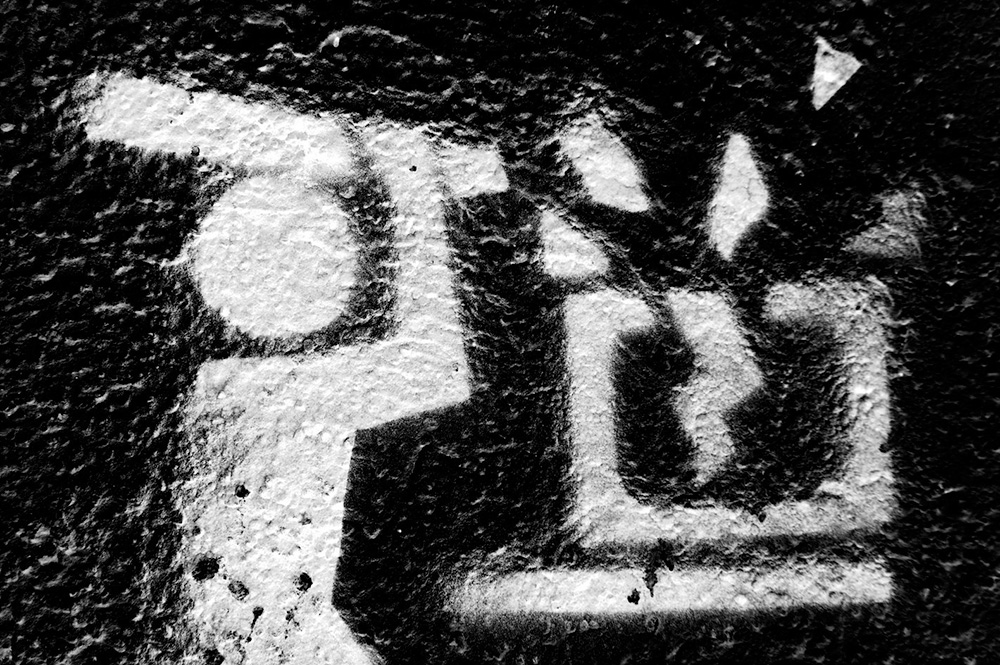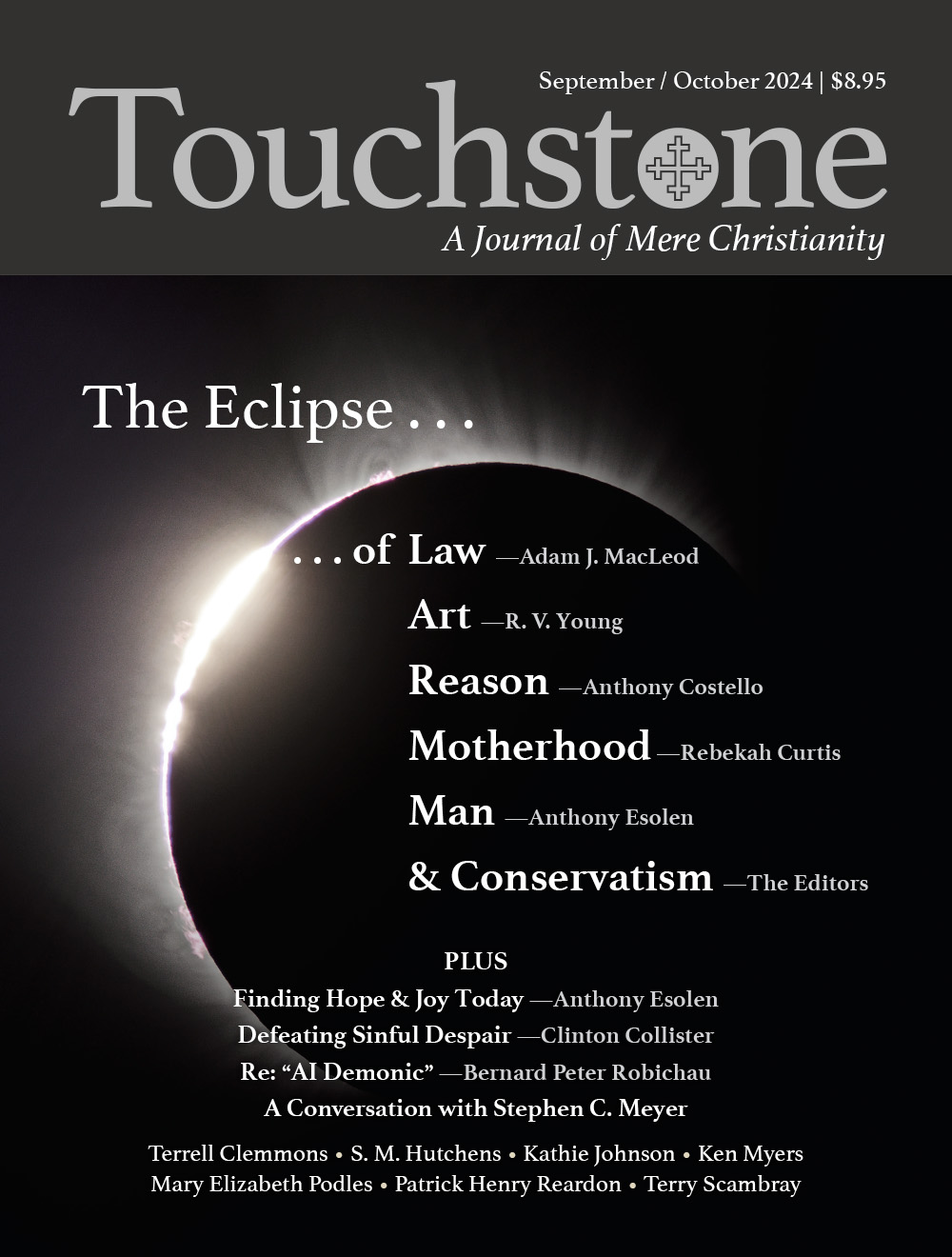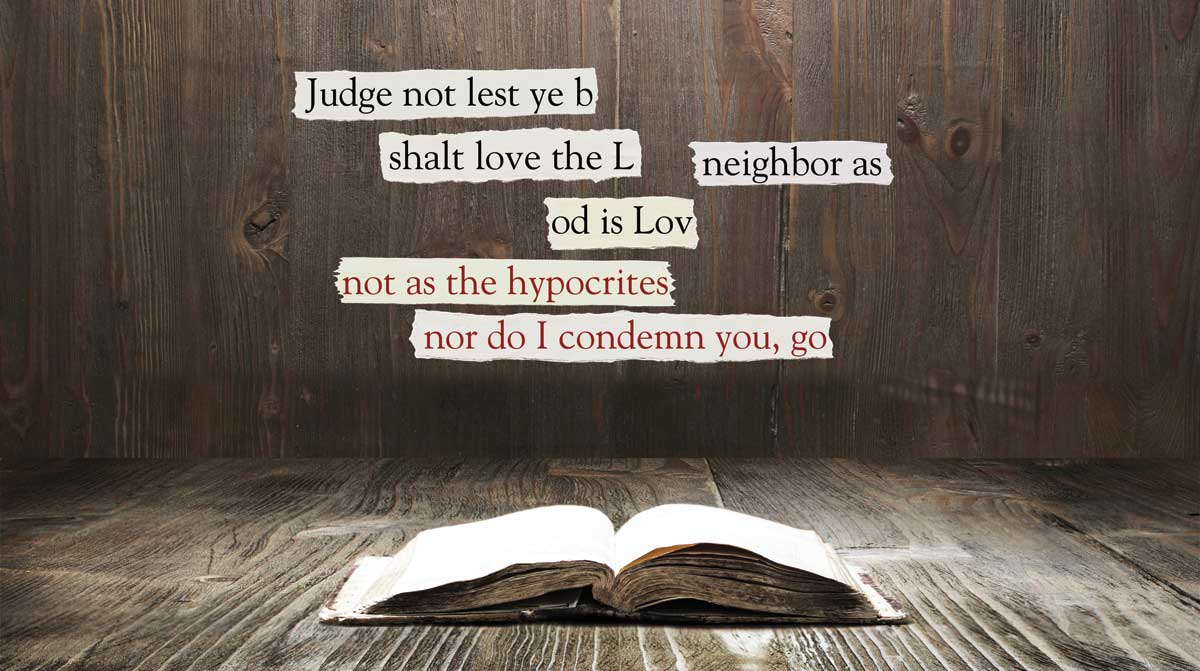AI: A Theological Response
Misgivings of a Recovering Technologist
The early nineteenth-century English Luddites were so angered by the threat posed by the indiscriminate proliferation of novel, job-destroying technologies that they took sledgehammers to the machines that were replacing them. Their zeal was perhaps tempered by a pragmatism that enabled them to operate these same machines as long as they could still earn a decent wage.
I am a technologist by profession. Having worked with modern enterprise technologies for over a quarter-century, I consider myself a sort of modern pragmatic Luddite (sans sledgehammers and violence), always wary of the potentially harmful impacts of digital systems that sit at the core of modern society. These technologies have nonetheless allowed me to adequately feed and house my family. I am also an Eastern Orthodox priest by vocation, answering to the name of Father Peter—the clerical Jekyll to my professional Hyde.
So it was with great interest that I read Paul Kingsnorth’s compelling spiritual critique of artificial intelligence (AI) entitled “AI Demonic” (November/December 2023). Kingsnorth is a master storyteller, and some, myself included, consider him a modern literary giant, in company with Lewis, Sayers, Tolkien, and their ilk. My first encounter with his writing was in Confessions of a Recovering Environmentalist, wherein he writes with a thoughtful charisma that compels a response—a rare and special literary talent.
As best as I can tell, Kingsnorth believes that AI is a force being ushered onto the “throne” of our culture by demonic forces that fuel our modern, indiscriminate material pursuits. I agree with his assertion that our modern digital age is demonic insofar as it can produce the precise results that the Devil desires.
The proverbial AI genie is certainly out of the bottle, but it didn’t appear in 2022 with the emergence of ChatGPT or in 2007 with the release of the iPhone. It wasn’t unleashed in 1983 by the U.S. taxpayer-funded ARPANET, which would become our modern internet. Modern Silicon Valley is a lovely, if not worthy, scapegoat, but we can trace the evolution of our present predicament back to eighteenth-century England, in the era before our friends the Luddites hit the scene.
A magical elixir of iron and steel, combined with fuels such as coal and petroleum, brought the internal combustion engine and all manner of fantastic machinery to life, transforming human beings and the societies they inhabit at every level. This seismic event, known popularly as the Industrial Revolution, set in motion a chain of events that would transform how humans relate to the world and each other.
Roughly 250 years later, the agrarian parables of Christ can perhaps seem quaint and irrelevant to the modern reader. Those who labor tirelessly in the summer heat, sowing seeds and cultivating the food that nourishes their families, are few and often impoverished. Vinedressers have been replaced with unethically treated migrant labor, and most of the things people own are not made of clay, wood, steel, or stone but rather are manufactured to disposable standards. As Edward Tenner says in his 1997 book, Why Things Bite Back, “The indignation of nineteenth-century producers has yielded to the irritation of late-twentieth-century consumers.” This is the origin story of the so-called digital revolution and our AI dilemma, and it gets me, like Kingsnorth, quite down in the mouth.
Kingsnorth responds by drawing a line in the sand regarding his adoption and use of technology, practicing what he calls “cooked asceticism” (he says that one could go a step further by practicing “raw asceticism” and retreating to the wilderness, far from the reach of these digital demons). In addition to vowing never to engage with an AI (by which I presume he means deliberately conversing with a modern AI chatbot or its successors), he has sworn off smartphones, scanning QR codes, submitting to so-called health passports, and using state-run digital currencies.
I believe that framing this problem within a proper theological context helps us avoid a knee-jerk reaction to another category of new technologies while formulating a reasonable response to a quarter-millennium of technological advancement made manifest today in what computer scientist Roman Yampolskiy predicts will be “the most impactful event in the history of mankind.”
Demons & the Spiritual Life
What, then, are the demons that war against us? Biblically speaking, demons are spiritual creatures who have rebelled against God, the chief among them being the devil (a.k.a. Satan, Lucifer, or “the Evil One”) who appears in the first pages of the Bible and maintains a prominent place in the sacred narrative until its Apocalyptic end.
It is popular to think about the spiritual realm in a magical way that can reduce the spiritual life to a series of defensive actions against red-winged, ethereal specters. An obsessive fear of or emphasis on demonic influence fails to acknowledge that the dominion of Satan is fleeting and ineffectual in the kingdom of God to which Christians belong through membership in the Church. It also denies the inherent goodness of all that is created, and that our primary calling as Christians is to manifest the divine image within. Evil only exists insofar as creation departs from the image of the Creator, but as the inimitable Chris Smither says, “The devil ain’t a legend, the devil’s real.”
Why does this matter, and how does it impact our response to the digital dilemma? The baptismal service of my Eastern Orthodox tradition provides a solid, theological framework from which to formulate a response.
Every baptismal service, whether for an infant or an adult convert, begins with a prayer that recognizes that the baptismal candidate is fleeing a broken world to the refuge of God’s kingdom. The text of the service entreats God to remove the ancient delusion into which we are born, in exchange for faith, hope, and love—the fruits of the Holy Spirit, so that we might walk according to God’s commandments. The prayer acknowledges that there is something disordered in need of healing. So the first step in the spiritual battle of a Christian is to strive toward holiness.
I arrived at the Orthodox Church 25 years ago from a rather staid reformed tradition, so you can imagine my surprise when, during my confirmation as an Orthodox Christian, the service began with a series of exorcisms. My knowledge of this ancient rite was at the time limited to the theatrical performances by Max von Sydow and Linda Blair in The Exorcist, which involved copious amounts of yelling and split pea soup.
“The Lord puts you under ban, O Devil,” began the priest, followed by a command for him to depart with his angels, the demons. I was the subject of a bona fide exorcism and was startled as I listened to several more long, ancient diatribes directed against the devil and his ministers of evil. The priest recited a prayer that acknowledges the nature of men, who need salvation from bondage to the enemy and deliverance into the heavenly kingdom. The kingdom in these prayers is not some distant, future destination, but the one into which the Christian enters immanently upon conversion.
He continued, “Open the eyes of his understanding, that the illumination of Thy Gospel may shine brightly in him. Assign to his life an Angel of light who shall deliver him from every snare of the adversary.” At this point, a clear demonology begins to emerge that accounts for the goodness of all things and the ability of the created to be saved from the grip of demonic influence. It frames spiritual warfare in a positive context, and ends with the words, “Expel from him every evil and unclean spirit which hides and makes its lair in his heart!”
As the service continued, I learned that the Christian’s weapons in spiritual battle are the Holy Spirit and an Angel of light, who protect us from evil encounters, including “the demon of the noonday . . . evil thoughts . . . the spirit of deceit, the spirit of evil, the spirit of idolatry and of every covetousness, the spirit of falsehood and of every uncleanness, which operates through the prompting of the devil.” And the prayers concluded:
Make him a reason-endowed sheep in the holy flock of Thy Christ, an honorable member of Thy Church, a consecrated vessel, a child of the light and an heir of Thy Kingdom, that having lived in accordance with Thy commandments, and preserved inviolate the seal, and kept his garment undefiled, he may receive the blessedness of the Saints in Thy Kingdom.
The demons being expelled aren’t the ethereal, green hellhounds of literary and cinematic lore, but spiritual obstacles encountered in our pursuit of holiness. Spiritual warfare sees Christians in an offensive position in pursuit of holiness. Sure, the enemy is bent on preventing us from achieving our mission by tempting us toward sloth, deceit, idolatry, covetousness, lying, and all sorts of evil. We find our identity in the kingdom of heaven, to which we belong, and we combat demonic attacks by pursuing Christ and a life lived according to his commandments.
Creator & Creation
In his paper entitled “Creation and Creaturehood,” Fr. Georges Florovsky says, “Creation by its very existence witnesses to and proclaims its creaturehood, it proclaims that it has been produced,” and, “It is insufficient and inexact to say that things are created and placed outside of God.” In other words, nothing exists or is sustained outside of God.
A thing qua thing exists in and is sustained by the Creator, and is not itself evil but capable of evil to the extent that it is distorted by demonic influence. This includes robots and artificial intelligence, which would not exist outside of God.
St. Paul told the Ephesian Christians, “Our struggle is not against flesh and blood, but against the rulers, against the authorities, against the powers of this dark world and against the spiritual forces of evil in the heavenly realms.” Our battle is not against a class of technologies made by men but against the demons that would tempt and divert us away from holiness, perhaps through AI-driven or digital mechanisms. I am convinced that evil things, perhaps on a scale we cannot imagine, will come to pass through AI systems—we have seen this all before. Like many inventions of our modern era, AI can certainly be used for evil, and we must oppose the dehumanizing, soul-destroying impacts of artificial intelligence on humanity by eliminating those things that diminish the image of God within us. As our Lord said, “If your eye offends you, pluck it out.”
Modern technologies and manufacturing methods have enabled the production of weapons of war that dehumanize our so-called enemies. These same types of technologies have also helped to quell famine, hunger, suffering, and disease for millions of people. Likewise, the nuclear science that unleashed unfathomable terror and death on Hiroshima and Nagasaki, and still threatens us today, is the same science that has already saved countless human beings from the ravages of cancer and premature death. The same internet that transmits soul-destroying garbage while indiscriminately and programmatically inducing loneliness, addiction, and depression in countless souls also promotes the sharing of virtually all recorded wisdom and beauty.
But I am compelled to ask: on what grounds might a Christian object to a cure for cancer if an AI system discovers it without violating any ethical or moral principles? Christians must respond to technological advances and the potential evil impacts of AI, but we should avoid reacting. To draw a line in the sand regarding specific technologies (and to neither adopt nor engage with any further advancement) is shortsighted. There is nothing in this world that exists outside of God, and it is our job as Christians to seek out and restore the image of God in creation to the extent that it has been distorted through the operation of the devil and his angels.
A Thoughtful Anthropology
Speaking on advancements in robotic technology and artificial intelligence about five years ago, Hiroshi Ishiguro said, “Organic bodies are not a precondition for human existence.” This claim certainly challenges traditionally held teaching about what it means to be a human person. Anthropological assertions like this might have once been dismissed as futuristic speculation, but when modern robots assume human-like form and computerized systems are predicted soon to be more intelligent than humans, the materialist atheist might seem justified in making such radical claims once relegated to the domain of Star Trek philosophy.
Without question, digital technologies and AI are having a profound impact on us all. People are more isolated, more prone to embrace lies, more faithless, and arguably angrier. Digital products have proven their ability to distort the image of God within us, which is precisely what we must guard against. We have reached the point where the stakes for humanity are high and radical ideas about what it means to be human should certainly provoke a reasonable, non-reactionary response from Christians.
Christian orthodoxy rests on the belief that man was created in the image of God, and that image has been distorted through sin. The good news, as the Orthodox hymns of Christmas proclaim, is that “Christ comes to restore the image which He made in the beginning.”
The arrival of AI demands a thoughtful Christian anthropology that preserves the uniqueness of mankind within the created order and its role in the redemption of the cosmos. A non-negotiable starting point for us should be the fact that God was incarnate of the Virgin Mary and became man (as homo sapiens 2,000 years ago, not a robot in 2030), was crucified, suffered, and rose again for our salvation.
Apocalypticism & Silicon Valley
Lest I be accused of denying or downplaying the potential cataclysmic impacts of AI systems that are being made and deployed without due care, I certainly share these concerns. As I noted earlier, the genie is out of the bottle when it comes to AI.
Due to cost, only the largest technology companies, like Google, Amazon, and Microsoft, can presently harness the modern capabilities of AI at scale. We are, they tell us, to find comfort in the fact that big tech will make the right decisions for society and humanity without ground rules, but this claim rings hollow coming from the creators of Facebook, Instagram, and YouTube, which have been knowingly using artificial intelligence to shape geo-politics and rewire the human brain for over a decade now. I am reminded of the Psalmist’s admonition to “Put not your trust in princes and sons of men, in whom there is no salvation.”
The commercial implementation of AI systems might be governed to some degree by civil legislation. While the European Union has drafted a helpful framework of ethical principles for AI governance, the demonstrated inability of the U.S. Congress to produce useful legislation on a matter as complicated as AI affords little hope that meaningful guardrails will be imposed externally. The Chinese government has enshrined different requirements for AI, but they are intended to rein in capitalist applications while allowing the Chinese Communist Party unfettered access to the full potential of AI, presumably to bolster its campaign of societal control and oppression.
We know that it is only a matter of time before the most advanced technologies are commoditized—the iPhones that we carry in our pockets today are 5,000 times more powerful than the most advanced supercomputers that existed just several decades ago. Now consider the “generative” AI technologies, which are presently being employed by hackers to accomplish their devious tasks with greater speed and sophistication—these revolutionary tools of today will eventually be the domain of hobbyists and the North Korean regime alike. Some scientists are calling this predicament potentially apocalyptic, and some Christians are naturally responding in fear.
Christ’s return and the Apocalypse have been recurring theological themes since the birth of Christianity. Faithful Christians of every era have grappled with the problem of modernization, suspected Antichrists, and societal evils through an apocalyptic lens. Christians in the first, fourth, and late twentieth centuries alike have been convinced of the imminence of Christ’s return and have reacted in different ways. As Mary Shelley, herself a devout Christian, wrestled with the ominous potential of the Industrial Revolution in the novel Frankenstein, so, too, must we weigh the moral implications of our changing world. But the answer is not to obsess about eventualities or to retreat from society.
There is a trend in some corners of Christianity to demonize technologies or ideas that seem ominous or threatening. Narratives surrounding the recent global pandemic response, including mask mandates and travel restrictions, QR codes, and digital currencies have been afforded an unfounded theological and eschatological significance in some Christian circles. Conspiracy theories and culture wars too easily become an all-consuming idol while the pursuit of holiness is relegated to secondary importance or neglected altogether.
The same trend is emerging in the Christian discussion of AI. While these topics might be great fodder for debates about individual liberties and societal freedom, they have nothing to do with our Christian faith. They serve instead as a distraction from the one thing needful.
Belief in the imminence of Christ’s return is reasonable and even helpful, but the Christian response should be to prepare more zealously for the great parousia through repentance. We should flee from deceit, idolatry, and covetousness while pursuing holiness, faith, hope, and love—a life lived according to God’s commandments. Perhaps some will need to retire their smartphones or stay off the internet to pursue holiness properly; if so, then may these measures be blessed.
But to the extent that AI or technological advances contribute to the healing of our wounded world, perhaps by alleviating suffering, reducing homelessness, or eliminating deadly diseases, Christians should be the first to recognize that these good things emanate only from the Creator, who is the source of all good. The whole-cloth demonization of AI or, worse, personification of it as the Antichrist denies this essential tenet of our faith.
We would do well to avoid invoking the spirit of Antichrist and to follow instead the sage advice of Geerhardus Vos in his book The Pauline Eschatology: “[St. Paul’s admonition] belongs among the many prophecies, whose best and final exegete will be the eschatological fulfillment, and in regard to which it behooves the saints to exercise a peculiar kind of eschatological patience.”
On Living in the Quagmire
In the early centuries of the Church, Tertullian posed the question, “What has Athens to do with Jerusalem?” He was concerned that the reasoned philosophy of the Greeks was wholly incompatible with the Christian faith. This became known as Tertullian’s “two-city problem.”
In a 2022 article in Wired magazine, Luke Burgis argues that, with the addition of Silicon Valley, we now face a three-city problem. Technological progress is epitomized in the materialist worldview of Silicon Valley, where economic value creation and utility reign supreme, while ethics and truth play no active role. This is indeed a problem.
Burgis argues that culture suffers to the extent that we cloister ourselves in our respective cities. The solution, he proposes, is for the inhabitants of Jerusalem, Athens, and Silicon Valley to prioritize mutual understanding and dialogue surrounding the most essential questions about humanity and what technology is doing to humans.
It is, however, much easier to run for the hills. I have little use for retreatist responses to our supposedly vanishing Christian culture (was it ever really a Christian culture?). I put Rod Dreher’s “Benedict option” in this category and perhaps now Kingsnorth’s “raw asceticism” proposal. The raw ascetic uses the Amish as his lodestone, which troubles me, as the Amish have, in the process of demonizing zippers and neckties, ceased to evangelize and therefore failed in the essential calling of a Christian (though I might agree with the demonization of neckties on an entirely practical level, since they are the most impractical and constraining of all men’s accessories).
Certainly, we need ascetics who are willing to flee to the desert to take up a life of prayer, far from the distraction of the city, on behalf of the Church and our wounded cosmos. But this is an exception to the rule for most followers of Christ.
In his commentary on the Gospel of Matthew, St. John Chrysostom offers a corrective:
You are the salt of the earth. It is not for your own sake, [Jesus] says, but for the world’s sake that the Word is entrusted to you. I am not sending you into two cities only or ten or twenty, not to a single nation, as I sent the prophets of old, but across land and sea, to the whole world. And that world is in a miserable state. For when he says: You are the salt of the earth, he is indicating that all mankind had lost its savor and had been corrupted by sin. Therefore, he requires of these men those virtues which are especially useful and even necessary if they are to bear the burdens of many. For the man who is kindly, modest, merciful and just will not keep his good works to himself but will see to it that these admirable fountains send out their streams for the good of others. Again, the man who is clean of heart, a peacemaker and ardent for truth will order his life so as to contribute to the common good.
Fortunately, Kingsnorth gives us an alternative, less retreatist option with his “cooked asceticism,” where one remains inside “the city” but has established personal, point-in-time limits on the use of technology. In both of Kingsnorth’s models, ascetics are obliged to respond by “drawing a line, and saying ‘no further’ [and] making sure that you pass any technologies you do use through a sieve of critical judgement.”
Passing all technologies “through a sieve of critical judgment” is a practice that I enthusiastically support. This is the scriptural standard that should apply to everything we do in life. St. Paul’s final words in First Thessalonians admonish us, “But examine all things; hold fast to what is good. Stay away from every form of evil. Now may the God of peace himself make you completely holy and may your spirit and soul and body be kept entirely blameless at the coming of our Lord Jesus Christ.”
It is the “saying ‘no further’” proposition that gives me pause. I don’t believe there is a good and evil binary between God and the so-called technium that demands the adoption of immutable technological prohibitions. Christians have always wrestled with the complexities of an ever-changing and frightening world that can sometimes challenge our theological presuppositions. In so doing, we should heed Christ’s admonition to be wise as serpents and as harmless as doves.
If a principled ascetical line is established, the implications will be more than inconvenient. Would a husband deny his wife or child the benefits of a novel life-saving intervention if it employed artificial intelligence? Will we fail to support remedies for wrongful incarceration if the “attorneys” with the time and ability to work through the complex issues involved happen to be machines and not people?
I am reminded of news stories in which a Christian Science or Jehovah’s Witness adherent refused life-saving blood transfusions, leading to unnecessary death. Having been hospitalized and close to death myself, I am grateful for the four units of someone else’s blood that saved my life. While the courts in our liberty-obsessed nation might defend our right to make all sorts of unreasonable and irrational decisions, we should be careful where we draw lines for ourselves.
Self-discipline is essential to the Christian life, and technological ascesis of one form or another is particularly important in our constantly evolving world. We must, however, not react but choose instead to respond to the new digital world through the lens of Christ, the eternal Word, who is the same yesterday, today, and forever.
Concerning the eschaton, Jesus tells us, “Because wickedness is multiplied, most men’s love will grow cold. But he who endures to the end will be saved. And this gospel of the kingdom will be preached throughout the whole world, as a testimony to all nations; and then the end will come.” Considering that we are commanded to “go” and to share the saving gospel, retreat and withdrawal aren’t viable options.
Perhaps my measured approach is self-accommodating, and a more revolutionary response is in order—Jesus was a radical after all. But I firmly believe that the way of salvation lies somewhere closer to the center and not at the extremes, where the demons, who want nothing more than to excite the passions and elicit irrational responses from us, lie in wait.
Bernard Peter Robichau , a priest by vocation and a technologist by profession, writes at the intersection of technology, philosophy, and theology. He resides in upstate South Carolina and is a clergyman of the Orthodox Church in America, Diocese of the South. He can be found online at thirdcity.substack.com.
subscription options
Order
Print/Online Subscription

Get six issues (one year) of Touchstone PLUS full online access including pdf downloads for only $39.95. That's only $3.34 per month!
Order
Online Only
Subscription

Get a one-year full-access subscription to the Touchstone online archives for only $19.95. That's only $1.66 per month!
bulk subscriptions
Order Touchstone subscriptions in bulk and save $10 per sub! Each subscription includes 6 issues of Touchstone plus full online access to touchstonemag.com—including archives, videos, and pdf downloads of recent issues for only $29.95 each! Great for churches or study groups.
Transactions will be processed on a secure server.
more on Technology from the online archives
more from the online archives

27.6—Nov/Dec 2014
Tales of Forbidden Stereotypes
Real-Life Men & Women & the Tragic Loss of Human Comedy by Anthony Esolen
calling all readers
Please Donate
"There are magazines worth reading but few worth saving . . . Touchstone is just such a magazine."
—Alice von Hildebrand
"Here we do not concede one square millimeter of territory to falsehood, folly, contemporary sentimentality, or fashion. We speak the truth, and let God be our judge. . . . Touchstone is the one committedly Christian conservative journal."
—Anthony Esolen, Touchstone senior editor









